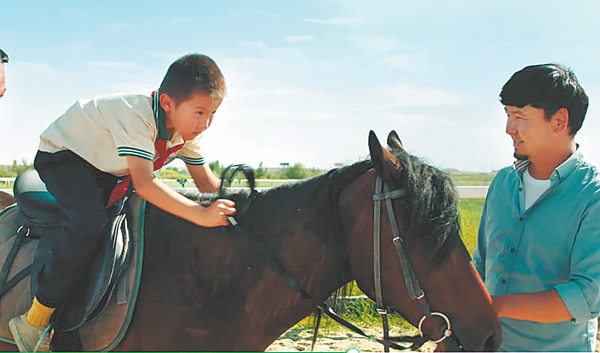

"I think the children in Xinjiang lead happy lives, and the region also places a great emphasis on the education of ethnic youths," he says, adding that junior high school graduates from the region's ethnic groups are eligible for preferential policies to attend high schools in cities with richer education resources, such as Beijing, Shanghai, and Shenzhen.
Describing himself as someone who also benefited from a policy to support more Xinjiang high-school graduates in pursuing higher education in bigger cities, Shapkat recalls that he was unexpectedly recruited by the Beijing Film Academy, even though he had only wanted to be admitted to a professional fine art college. The experience earned him opportunities to take part in the production of several films while studying in the capital.
After graduating from the academy in 2011, he landed a job working in the art department of the Tianshan Film Studio, an established regional production company which was founded in Xinjiang in the 1950s.
In 2015, when the studio started planning to shoot Here is Xinjiang, a documentary film celebrating the 60th anniversary of Xinjiang's status as an autonomous region, Shapkat was entrusted by Gao Huanggang, the studio's president, with shooting the footage for the opening scenes. His talent quickly earned him recognition, resulting in the chance to shoot five of the 20 stand-alone chapters of the documentary.
After accumulating more experience by participating in the making of feature-length movies like Fade Away Pastoral (2018) and The Wings of Songs (2021), Shapkat managed to realize his directorial dream.
Contact the writer at xufan@chinadaily.com.cn